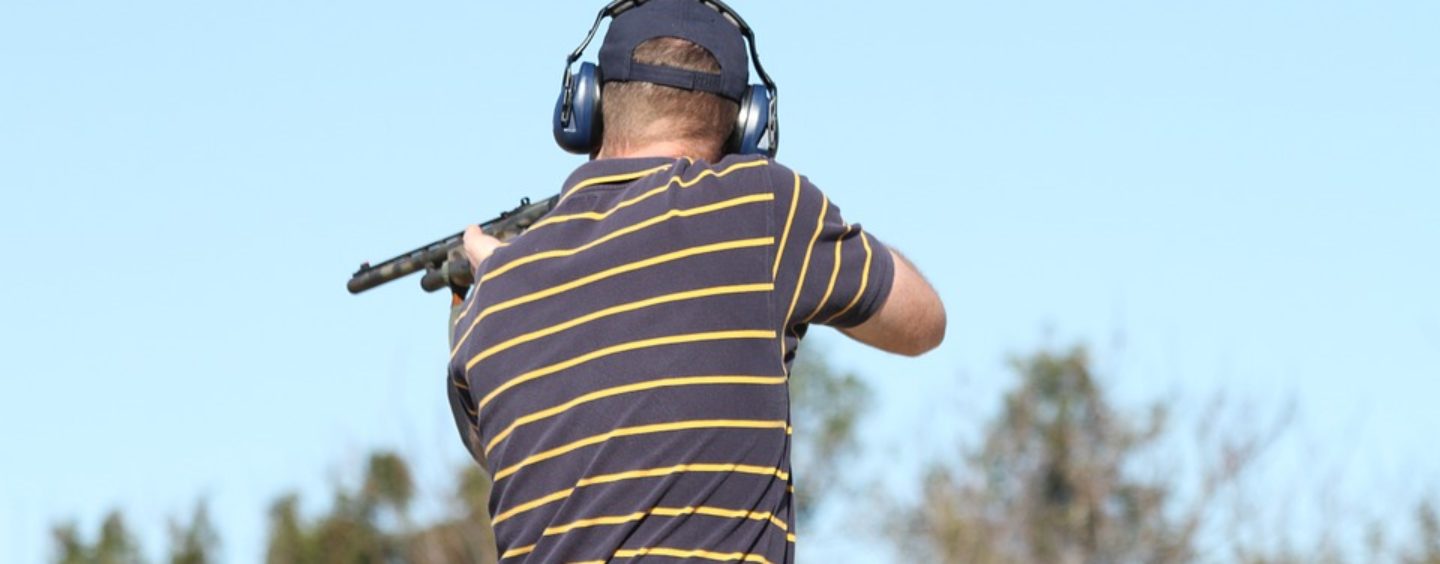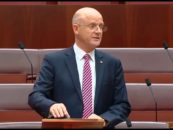In July 2015, the Abbott government introduced a customs regulation to prohibit imports of seven-shot lever-action shotguns. The announcement by the prime minister made clear it was part of the government’s one-announcement-per-week terrorism strategy. It was also said to be temporary, pending a review of the National Firearms Agreement involving the states and territories.
About two weeks, later the government was seeking my support to oppose an amendment to a bill relating to migration. Labor’s amendment raised no questions of rights or freedoms – it was to increase from one to two the number of independent people present when biometric data was collected from minors – and I was indifferent as to its fate.
That led to the now-famous – or infamous – agreement in which the government agreed in writing to apply a sunset clause to the shotgun import ban, in exchange for my vote on the amendment.
We both acted on the deal. I voted with the government, and the government introduced a new regulation placing a limit of 12 months on the import ban. The ban was to be lifted on August 7 this year.
A week before the import ban was due to be lifted, it was reimposed. The Minister for Justice, Michael Keenan, told me that he never had any intention of allowing the shotguns to be imported. In other words, there had never been any intention of keeping to the bargain. When Tony Abbott chimed in – once it had been linked in the media to my vote on the reinstatement of the ABCC – it was clear that whether he knew about the deal of not, he would also have failed to honour it.
This places the government in a tricky position. Following the election, the government now requires the support of nine of the 11 crossbench senators for its legislation to pass. Securing that support is obviously more difficult if it cannot be trusted to negotiate in good faith. It sets the tone of negotiations before they have even begun.
Political cut-and-thrust
Some in the media see this as part of the cut-and-thrust of politics. I do not, and nor do most (but not all) of my parliamentary colleagues.
There was cut-and-thrust in negotiating the agreement, from which the government could have chosen to withdraw at any time. Instead it gave its word, which it then broke.
As for the merits of the import ban itself, it only applies to seven-shot lever-action shotguns. The five-shot version can be imported and legally owned by sporting shooters. It is also possible to convert a five-shot Adler into seven or more, simply by fitting a longer magazine tube under the barrel. It is not illegal, and plenty of people are doing it.
The import ban achieves nothing, and is not preventing the ownership and use of seven-shot lever-action shotguns.
Not that there is anything to fear from seven-shot lever-action shotguns. The presence of two extra rounds in the magazine does not transform it from a safe to a dangerous firearm. Neither a mass murder nor a terrorist attack is more likely because of those two extra rounds.
Relatively few firearm owners want to own a lever-action shotgun, and even fewer care whether it holds five rounds or seven. However, every one of them knows the implications of creeping regulation on their sport. They know if it’s lever-action shotguns today, it will be something else tomorrow. The Firearms Section in the Attorney-General’s Department has had an agenda of incremental restrictions on firearms for over a decade. Semi-automatic pistols, pump-action rifles, lever-action shotguns and lever-action rifles are on their list.
Disarming law-abiding Australians
The government’s behaviour in relation to its deal with me is not only about trust, but also about what’s being done to sporting shooters. It is yet another step in the process of disarming law-abiding Australians, of preventing them from enjoying their sporting, hunting and collecting activities, and towards the end envisaged by John Howard in 1996 in which only the police, military and security guards have guns.
And if the government can’t be trusted to keep to a deal with me, how can it be trusted if it owns all the guns?
David Leyonhjelm is a senator for the Liberal Democrats
First published in the Australian Financial Review









